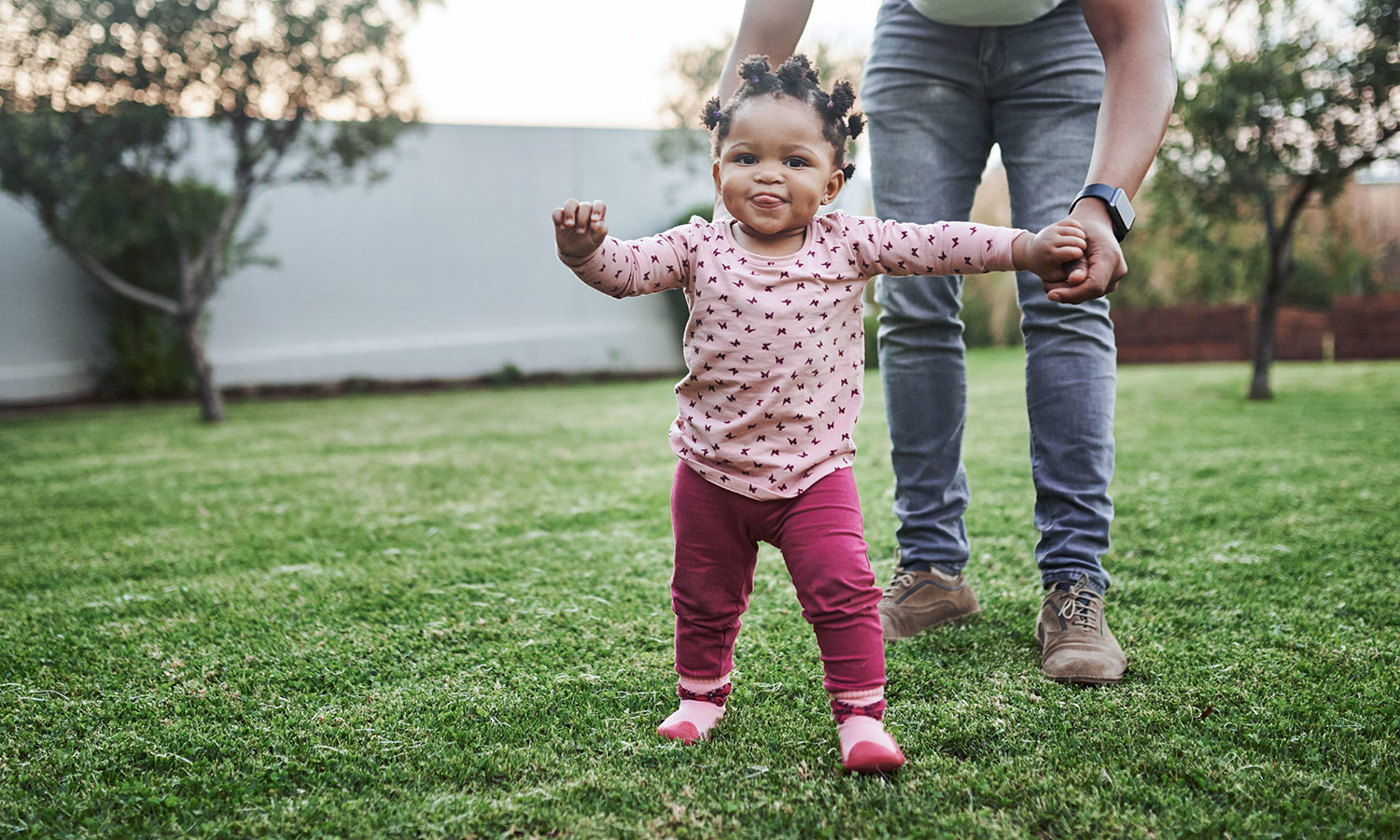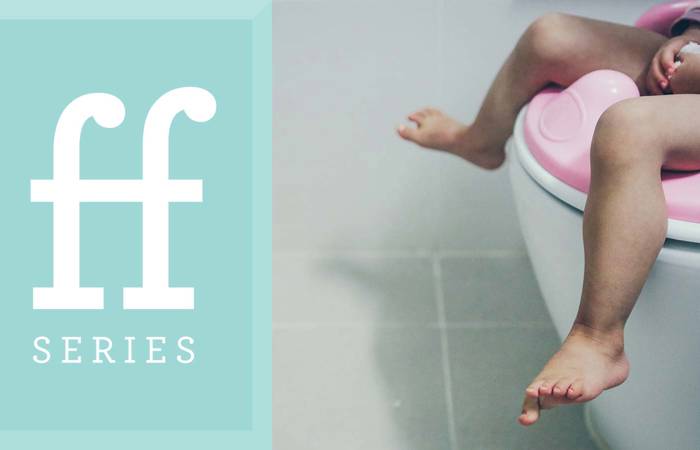Like what you see?
Sign up to receive more free parenting advice.
Thank you for subscribing to our newsletter!
Child Development

Credit: iStock.com/mapodile
If your child isn’t doing something you think they should be doing by a certain age, a quick Google search can either allay your concerns, or take you down a rabbit hole of conflicting and sometimes damaging advice.
Sorting through the reams of information available to find sensible, evidence-based advice from properly qualified people you can trust can be hard, especially when some advice can come from well-meaning and loved family members, friends or neighbours.
So, what do you do if you’ve noticed that your child isn’t meeting the milestones for their age and how do you know when to just let them develop at their own pace, or when to investigate further?
Dr Kim Drever BMBS (Hons) MPH FRACP is a developmental behavioural paediatrician and she recommends parents and carers should always seek qualified advice if they have any concerns about their child’s development.
Dr Drever says maternal child health nurses or behavioural paediatricians can provide parents with up-to-date clinical advice about their children and can be a good place to start.
"The take home message is to act on any concern, ask and ask again until you feel satisfied that you have been heard AND you feel reassured by the advice you are given. There is no shame in asking," she says.
For a quick reference, the Australian Government’s Early Years Learning Framework Practice Based Resources - Developmental Milestones provides guidance through a range of milestones. The milestones should be considered guidelines and parents shouldn't be concerned unless their child displays one of the criteria under which it is recommended that they seek advice.
Dr Pamela Douglas is a GP and researcher, and an Adjunct Associate Professor with Griffith University School of Nursing and Midwifery. She is founder of the charity Possums & Co, which educates parents and health professionals in Neuroprotective Developmental Care (NDC or ‘the Possums programs’),
NDC is an evidence-based approach, built from about 30 research publications, to help with breastfeeding, sleep, crying and fussing, and parent mood after the birth of a baby.
Dr Douglas’ advice to families is to be aware of what developmental milestones might be appropriate for your baby, but don’t be too concerned about them.
“What I would say as an overarching piece of advice for families is that if you’re going in regularly to see your GP for your baby’s vaccinations throughout infancy and for the first 12 months of their life, then your GP will be keeping an eye on your baby’s development by doing those developmental assessments,” she says.
“Beyond that, I think families can hold the concept of milestones lightly because the truth is, our little people are biologically variable and they will develop at different times and at different rates.”
If parents still have concerns or questions about their baby or child’s development, then they should have a conversation with a trusted professional.
“I think your GP is the best point of call if you’ve got any reason to be concerned. Just make an appointment with your GP and talk it over,” she says.
“In many instances parents will find by checking in with their GP or a Child Health Nurse, they will get that reassurance that all is well, but checking-in means that for that one little child that does need some intensive support, you can get it started earlier rather than later.”
Rather than focusing on possible developmental “red flags”, Dr Douglas says parents should be aware of some common misconceptions about developmental milestones.
Infant and toddler sleep, sensory motor development and emotional and social development are some areas that parents might be unnecessarily worried about.
What is normal sleep development?
Dr Douglas says parents are given a lot of advice around normal sleep development that is not evidence-based and can unnecessary anxiety around their baby and toddler’s development.
“Infant sleep needs are highly biologically variable,” she says.
A high sleep needs baby (depending on that baby’s age) might sleep for a total of 18 hours in a 24-hour period which includes long daytime naps, whereas a low sleep needs baby might sleep just nine hours in a 24-hour period with small cat naps throughout the day.
“Both the low-sleep need and high-sleep need babies are developmentally normal,” she says.
“But if you have a low-sleep need baby then what you can hear is that your child’s sleep and cognitive development is going to be impaired and you have to teach them to sleep.
“This is inaccurate developmental information and if you’re given the idea that to be a good parent you’ve got to teach your baby to sleep through the night, then this can really ramp up family anxiety about their child’s development.”
In many instances parents will find by checking in with their GP or a Child Health Nurse, they will get that reassurance that all is well, but checking-in means that for that one little child that does need some intensive support, you can get it started earlier rather than later.Dr Pamela Douglas
Stay up to date with the latest news and articles from First Five Years
Thank you for subscribing to our newsletter!
Rich sensory experiences
If a baby is unsettled, often parents will hear the term “over stimulated,” but Dr Douglas says this is a myth.
“Sensory stimulation is something that is vital to infant development and it is often overlooked,” she says.
“Babies often grizzle and cry inside our home just because they are bored.
“We know that from birth our babies are laying down neural templates or pathways in their brain for the rest of their life, and they are laying them down in direct response to rich and changing input across all their senses.
“We need to be very clear with parents that you do need rich and changing environmental input for your baby’s sensory motor development,” she says.
Getting out of the house, going for a walk, visiting friends or family, walking through the shops or going to a park all offer rich environmental experiences for the baby.
Motor development
To support your baby’s motor development, you need to strengthen their core muscles by encouraging them to sit up and roll over, right?
Actually, integrated motor development should take place in its own time and that timing will vary for each baby, says Dr Douglas.
“We certainly shouldn’t be trying to hasten this motor development, instead we just need to support our babies’ muscular skeletal system,” she says.
Instead of helping your baby to sit up before they’re ready, or bouncing them on your knee, Dr Douglas suggests some alternative activities that support motor development, without placing them into positions that their bodies aren’t ready for.
If you want to sit your baby up to see the world, Dr Douglas suggests sitting them in your lap with their backs against you so you are still supporting their skeleton.
If you are bouncing your baby on your knee then make sure you are still taking the weight and you’re not setting up a weight load that is too high for their developing legs and hips.
Don’t insist on tummy time being completed on the floor if your baby doesn’t seem to like it.
“The idea of tummy time is really important but we don’t want to make babies cry and develop a negative association with it,” Dr Douglas says.
“It can be a lot more flexible than parents might realise.”
Some alternative tummy time ideas include holding your baby on his tummy over your arm looking out, or on your chest when you are lying down, looking at you and interacting with you.
Social and emotional development
Developing a secure attachment with your baby through back-and-forth interactions is paramount to helping with their social and emotional development, says Dr Douglas.
“What is so important about this social and emotional development is that you are looking out for all of these opportunities your baby presents to you for a to and fro interaction,” she says.
“Even from very early on, your baby will be initiating that response whether it be through a tiny gesture or facial expression change and what is important during these times is that a loving parent responds and then you can grow that to and fro interaction,” she says.
“All of the neuroscience teaches us that that responsivity with our babies is so important to secure attachment.”






